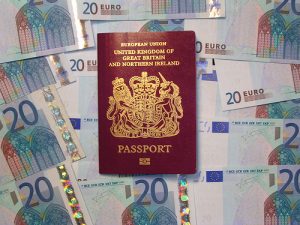Is there anything which Brexit won’t affect? The process of withdrawing from the EU has been headline news for months. Predictions range from a full on apocalypse with no flights and no food on shelves, to everything carrying on pretty much as normal. Nobody knows for sure. However, one thing which is certain is that after the UK leaves the EU, right to work checks will have to change. If you’re running a small business which employs people from outside the UK, it’s something you should be up to speed with.
What are right to work checks anyway?
 Right to work checks are about employing workers legally. It’s the Home Office who are in charge of overall immigration into the UK, but employers have to play their part too. Fines for employing illegal workers have been around for years. Businesses can be fined up to £10,000 per illegal worker. In order to minimise risks, all businesses should be checking up on everyone applying to work with them. The easiest way of doing this is to ask people to bring their passports to their interview. Employers can then take a photocopy of the details page to prove that they’ve done everything they can to confirm immigration status. If it’s a British or EU passport, the right to work is clear. Outside the EU, it’s a little more complicated. And this complication is only going to get worse when EU passport holders lose the automatic right to live and work in the UK.
Right to work checks are about employing workers legally. It’s the Home Office who are in charge of overall immigration into the UK, but employers have to play their part too. Fines for employing illegal workers have been around for years. Businesses can be fined up to £10,000 per illegal worker. In order to minimise risks, all businesses should be checking up on everyone applying to work with them. The easiest way of doing this is to ask people to bring their passports to their interview. Employers can then take a photocopy of the details page to prove that they’ve done everything they can to confirm immigration status. If it’s a British or EU passport, the right to work is clear. Outside the EU, it’s a little more complicated. And this complication is only going to get worse when EU passport holders lose the automatic right to live and work in the UK.
How will Brexit affect all this?
At present, people from across the EU have the right to move to the UK and get a job, no questions asked. And conversely, British people have the same rights. That means that when it comes to legal working checks, anyone with an EU passport automatically qualifies as a legal worker. Brexit will change all of that. EU passport holders won’t be able to move to the UK and get a job in the same way as before. They will have to follow the same procedures for people coming from elsewhere in the world. That will probably mean applying for a visa before entering the UK. The picture is muddied even further by the fact that there are thousands of EU citizens already here in the UK working. The government has assured them that they can stay. But how do they prove that when applying for a new job?
Implications for employers
Employers are understandably confused by all this. The exact visa requirements for people living in the EU are still unclear. Hopefully, when Brexit finally happens, there will be more guidance issued by the government. The best advice is to keep watching for news, and hope for more guidance. It’s likely that the Home Office will set up some sort of helpline or website for advice. Try to keep up to date with developments. Keep taking copies of applicants’ passports, and file them away in case questions are asked in the future.